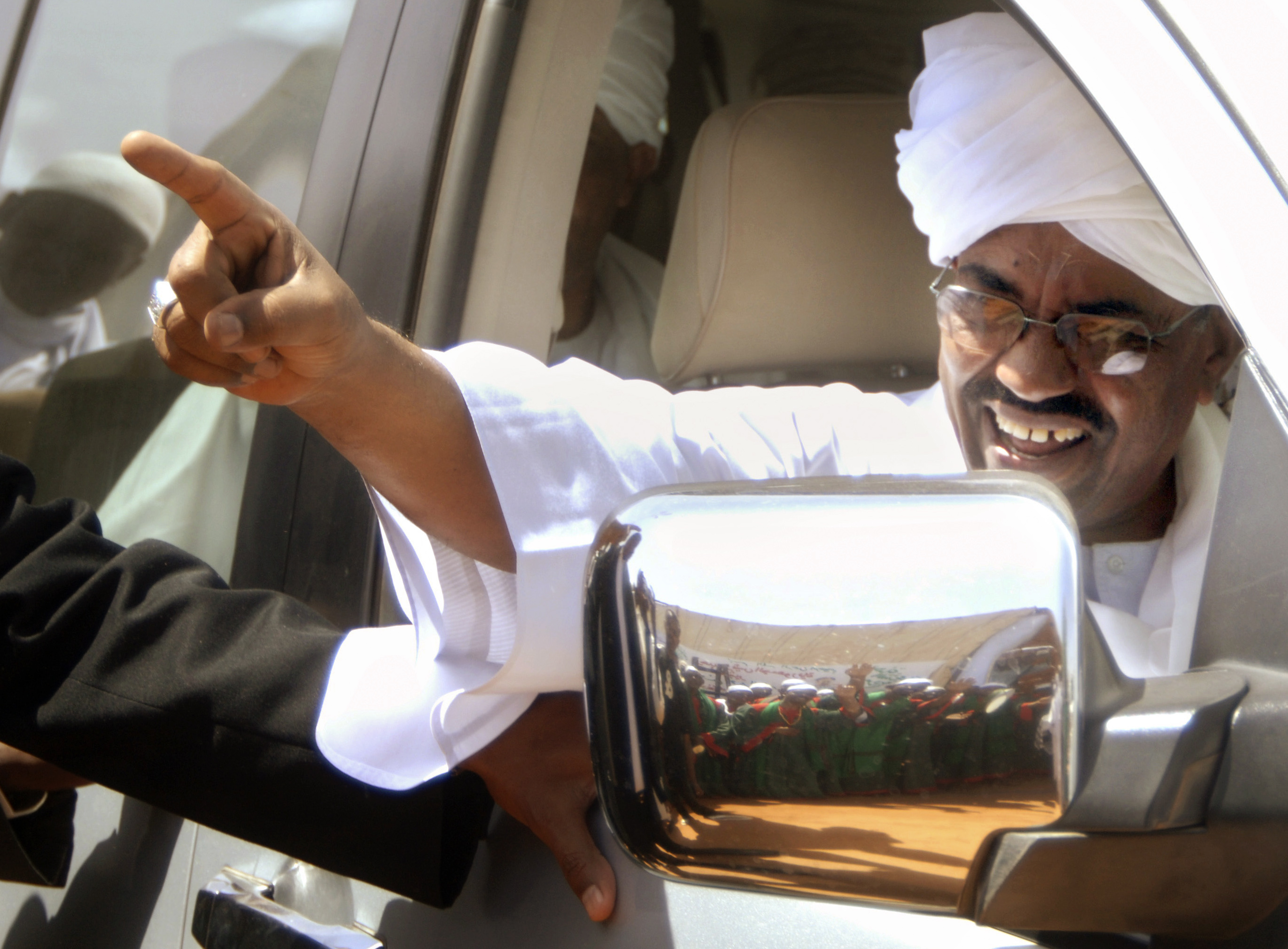
On Monday, the Sudanese government announced that Foreign Minister Ibrahim Ghandour will lead its delegation at the United Nations General Assembly (UNGA) later this month. A few weeks ago, the government stated that President Omar al-Bashir planned to travel to U.N. Headquarters in New York to head Sudan’s delegation. The Sudanese government announced these travel plans despite Bashir’s outstanding arrest warrants from the International Criminal Court (ICC). The ICC issued an arrest warrant for Bashir in 2009 for crimes against humanity and war crimes and again in 2010 for genocide. Despite these arrest warrants, Bashir has managed to visit several countries, including a trip to South Africa earlier this summer, where he narrowly escaped arrest.
Bashir’s announcement that he would travel to New York to attend the UNGA, only to then refrain from doing so, is a familiar ploy. Bashir took this tack in 2013, when he also requested a visa to speak at the UNGA. The U.S. never processed that visa application, as Bashir cancelled his trip when fuel subsidy riots broke out across Sudan. Before his cancellation, the U.S. government was outspoken in its criticism of Bashir’s request, which U.S. Ambassador to the United Nations Samantha Power called “deplorable, cynical, and hugely inappropriate.”
While it appears that Bashir is no longer considering a visit to this year’s UNGA, his repeated intentions to travel to U.N. Headquarters in New York raise serious political and ethical challenges, as well as two important legal questions:
- The first question is whether U.S. officials can lawfully deny Bashir a visa. The 1947 U.N. Headquarters Agreement requires the U.S. government to issue visas for representatives of U.N. member states and not to impose “any impediments to transit to or from the headquarters district.” Although Congress added a “security exception” when it approved the agreement, legal scholars challenge the validity of this exception and whether it allows U.S. officials to deny Bashir’s visa request. The U.S. has invoked this exception only once, when in 1988, U.S. Secretary of State George Schultz denied Yasser Arafat’s visa. This decision had strong congressional support, as 51 senators sent Secretary Shultz a letter urging him to reject Arafat’s visa application. Nonetheless, legal scholars have criticized this decision as a clear treaty violation, and in all likelihood, the U.N. Headquarters Agreement requires the U.S. to issue Bashir a visa if he decides to visit the U.N.
- The second and more interesting question is if the U.S. does issue Bashir a visa, can U.S. officials then legally arrest him if he decides to come to U.N. Headquarters. Former ICC Chief Prosecutor Luis Moreno-Ocampo recently made this argument, advising U.S. officials to allow Bashir to travel to New York to attend the UNGA and then to arrest him. Although bold, Ocampo’s argument is at odds with more nuanced legal positions, which maintain that Bashir’s immunity trumps other legal considerations.
The tension between Bashir's immunity and his ICC arrest warrants is not new and has received considerable attention in legal debate and academic discourse. Still, novel arguments for arresting Bashir as part of the larger struggle to end impunity continue. Hennie Strydom, a professor of international law at the University of Johannesburg, offers perhaps the most innovative argument for arresting Bashir at U.N. Headquarters through a close reading of the U.N. Headquarters Agreement. Citing section 9, Strydom shows that there may be more of an opportunity to arrest Bashir than commonly assumed. Section 9(a) states that while the U.N. headquarters are inviolable, “the service of legal process . . . may take place within the headquarters district only with the consent of and under conditions approved by the Secretary-General.” Thus, section 9(a) could allow for the arrest of an individual like Bashir—whom faces two ICC arrest warrants—with the consent and the approval of the U.N. Secretary-General.
Earlier this summer, U.N. Secretary-General Ban Ki-moon stated that he takes the ICC’s arrest warrant for Bashir “extremely seriously.” Strydom’s argument may provide the Secretary-General the legal authority to do something truly historic in the fight to end genocide and combat impunity. Although Secretary-General Ban Ki-moon has consistently called on ICC signatory states to enforce the arrest warrant against Bashir, he may have the legal authority to allow for the enforcement of this warrant should Bashir travel to U.N. Headquarters. At the very least, he should publicly ask the U.N. Office of Legal Counsel to review this argument to demonstrate just how seriously he takes this matter.
Bashir has not visited the United States since 2006. If he one days insists on visiting U.N. Headquarters, there would be no welcome gift more appropriate than the consent and the approval of the Secretary-General to execute his arrest warrant. Lacking the assurances that the Secretary-General is ready to take this step, U.S. officials should continue to apply as much diplomatic pressure as possible to convince Bashir that he is not welcome at the U.N. as long as he faces outstanding ICC arrest warrants.
Although Bashir will almost certainly not attend the UNGA later this month, the Sudanese government has made its intention to build political support to resist the ICC well known. As such, it is imperative that ICC member states fulfill their legal obligation to execute Bashir’s arrest warrant. While the legality of arresting Bashir during a trip to U.N. Headquarters remains a fraught legal question without a clear answer, the obligation of states that have signed and ratified the Rome Statute is undeniably clear: when Bashir visits these states, officials must arrest him.
Photo credit: AP Photo/Abd Raouf

